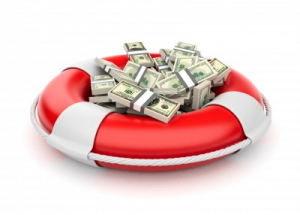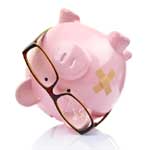
Savings is, like any other use of your income, a state of mind. The rule here is to pay yourself first. Don’t resolve to put whatever is left after expenses are met into a savings account. Make it the top priority. Developing that habit goes a long way toward helping you to resist the temptation to delay starting and maintaining a savings cache.
The amount you commit to an emergency fund is not as important as your commitment to do it faithfully. Include savings as an integral part of your family budget. Set up an automatic deposit that will put savings into your account a few days after your paycheck is deposited.
Whenever you have a little windfall – tax refund, gift, overtime pay, etc. – put it into savings. Each time you pay off a debt or receive a raise, think of savings first.
When you are job hunting, give preference to employers who can offer the best benefits such as health insurance, matching retirement savings plans or travel reimbursement. Each perk that comes with the job saves you the money it would have cost you and helps build your savings.
Put your emergency savings into a separate account. Look for an account that offers interest, if possible.
If you experience a financial emergency, of course use the money you have set aside for these occasions. Just don’t delay to begin building it again as soon as possible.
Your ultimate goal should be to have three to six months of savings as a cushion against money emergencies, including the loss of your job.





